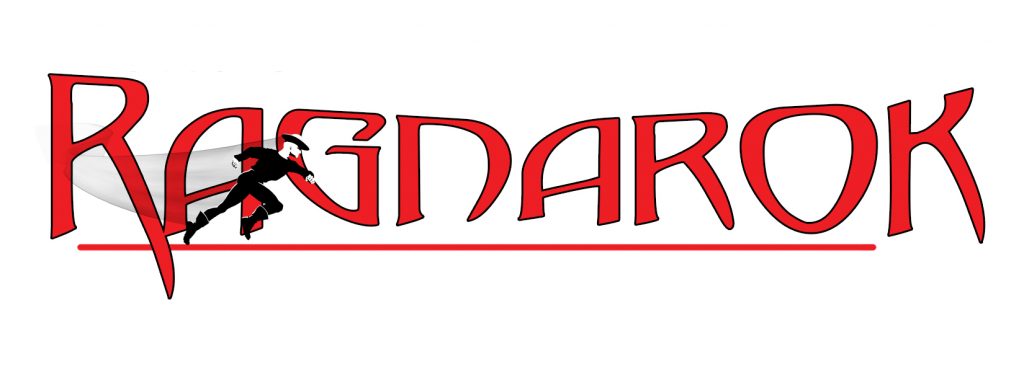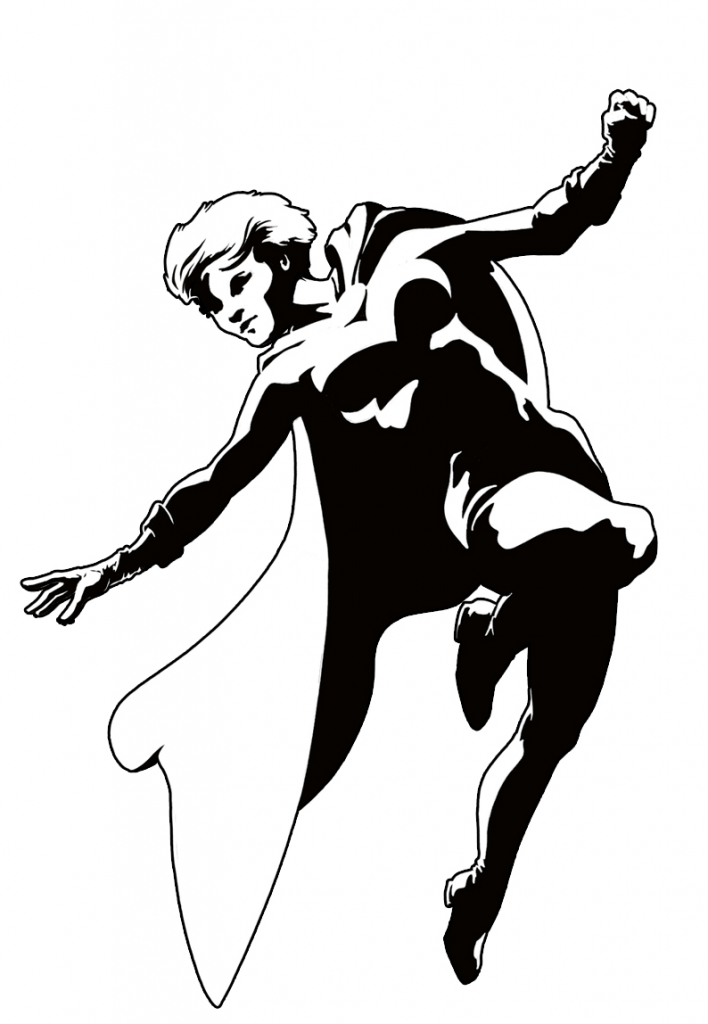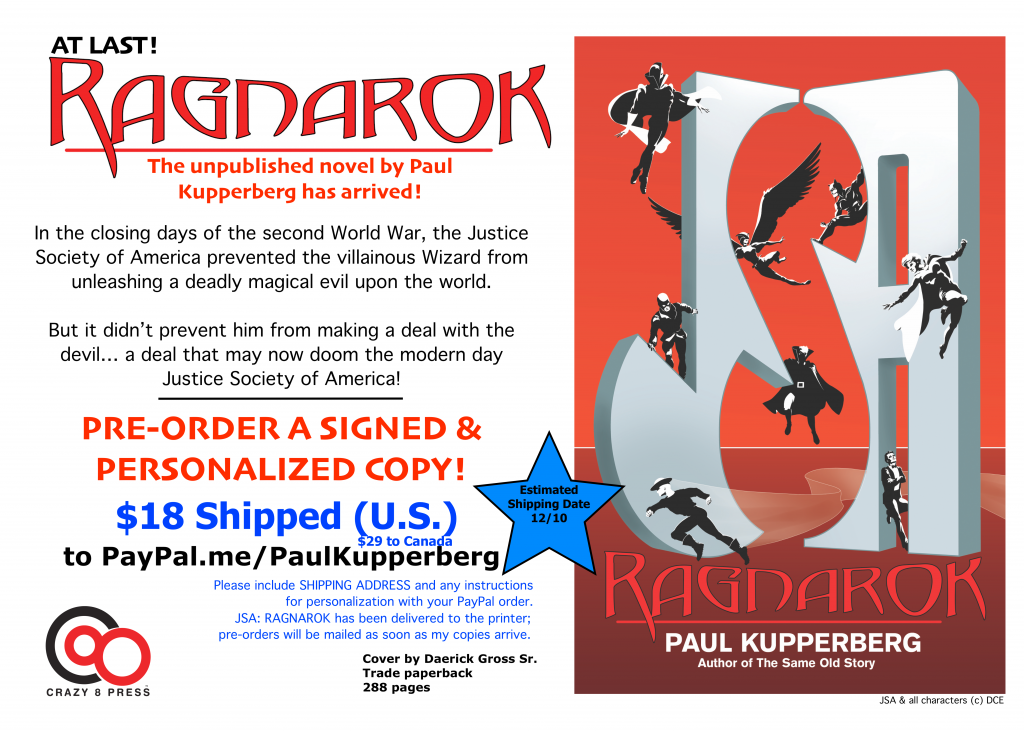
Special Sneak Preview!
Chapter 1
Today
On days like this Michael Holt was glad he’d decided not to die. That the early autumn air was pleasantly crisp after a brutally hot and sticky New York City summer was only one factor contributing to his contentment. The foliage in Central Park in the heart of Manhattan was just beginning its seasonal color changes, greens morphing into blazing reds and oranges, falling to carpet the park’s East Meadow.
It was one of those rare, perfect New York afternoons, the kind you usually only saw in movies with soundtracks by Gershwin. But today wasn’t a movie, only the life that Michael was living, and, for once, it felt good. For the moment, he was happy.
Well, okay, very content, which was the closest thing to happy he usually got. But it was hard to be anything else, what with the happy shouts and cheers of the kids at play all but drowning out the sound of the traffic on nearby 5th Avenue.
Normally something of a jock, in fact an uber jock, today Michael was happy to sit back and watch from the comfort of a picnic blanket at the edge of the field. The kids—not his own kids, although they were here under his charge—were having a great time, running themselves ragged in an endless game of serial touch football.
“Yo, Mr. Holt, man,” 19-year-old Tyler Williams called from the line of scrimmage. “I know you’re kinda over the hill, dude, but think you wanna get in the game anyway?”
“Don’t think so, Ty. I’m about two servings of potato salad and three cupcakes past being able to drag myself off this blanket.”
“Uh-oh. That’s gonna cost you in the gym.”
Holt smiled and lay back down. “I’ll worry about that tomorrow, man.”
A 12-year-old girl named Rena came charging up to Tyler and slapped the football from his hands. Another boy swooped in and grabbed it. Tyler laughed, shrugged, and ran off in hot pursuit. Tyler was one of the big successes of the Harlem youth center that Holt funded and oversaw. He had come to the after-school program a sullen fifteen-year old drop-out, already in gang colors and a world of hurt. Michael had assumed Tyler was looking to make trouble or recruit other kids, but the pot-smoking, gang-running, 9mm-toting gangsta found something with the other kids at the youth center that the gangs never provided. Without ever knowing exactly when or why it happened, Tyler shed the colors, went back to school, and was now, four years later, a sophomore at Columbia University on a full scholarship. He earned his walking around money as a counselor at the youth center.
And since he and the two other counselors were taking such good care of the rest of the kids, all twenty of them, ranging in age from 10 to 15, he couldn’t think of a single reason to budge from his place in the sun. The birds were chirping in the trees. Somewhere, a lone raven cried out. Everything was under control. There was nothing for him to do but to do nothing.
So, he did.
Michael Holt settled back, hands clasped beneath his head and closed his eyes, letting the sun’s warmth wash over his six-foot two frame, clad in comfortable jeans, sneaks, a Yale sweatshirt, and a denim jacket. He knew he had a lot to be grateful for, certainly more than most people, and absolutely more than the kids he mentored at the center. They had everything in the world working against them, born into lives of poverty, products of broken homes or victims of abuse, tempted by the lure of gangs and the empty promise of drugs.
Michael knew he’d had one cushy life compared to theirs. He had been born into a comfortable middle-class family, an unnaturally gifted student with an eidetic memory, a talent for the sciences, and a natural bent for athletics that he followed to an Olympic gold medal in the decathlon.
Having conquered the Everest of physicality, he turned his sights to business. Michael could easily have ridden his athletic fame to riches, but he couldn’t see spending his life on a ball field or endorsing underarm deodorant, not with the ideas spinning around in his head. He went to school instead, collecting degrees the way other kids collect baseball cards. Engineering at Cal-Tech, physics at M.I.T., law at Harvard, computer sciences at Stanford, medicine at Yale, and on, feverishly trying to stuff the bottomless pit of his mind with knowledge before he hit on the invention that allowed him to become one of the earliest, and certainly most successful, African-American entrepreneurs in Silicon Valley.
He developed the next generation of cybernetic software, the first commercially viable application of a system that controlled robotic devices through mental feedback. His development attracted the attention of every major high-tech company from Microsoft to Hewlett-Packard to WayneTech. Michael had taken his technological achievement as far as he could on his own. The only decision left to make was deciding which corporate monolith he would sell out to. Bruce Wayne himself, CEO of WayneTech and scion of one of America’s wealthiest families, showed up on Michael’s doorstep to personally conduct the negotiations for the sale of his little cyberware concern, cinching the deal.
When he was a kid, Michael had often heard his mother describe people as having “more money than they knew what to do with,” but he could never quite wrap his mind around the concept. After his deal with Wayne, he got it. With an impressive mound of cash up front and a healthy block of WayneTech options and generous royalties cushioning the back end, Michael Holt was rich. Filthy, stinking rich. He had, hey, look mom, more money than he knew what to do with. Michael Holt could afford to do anything he imagined anytime he imagined it.
He could take care of himself and his family and, best of all, spend the rest of his life sharing all the wonderful things his newfound wealth had bought with the love of his life, his wife, Paula.
Karen Starr just knew this wasn’t going to be her day.

Of course, in all fairness, Karen hadn’t started out a new day with any sort of optimism whatsoever in, well, if she stopped to think about it, it would just depress her more.
Which really was, Karen thought with stoic resignation, the story of her life. A matter of keeping her depression from advancing to the next level. Okay, maybe depression was too tough a word. How about calling it sorrow; or maybe emptiness described it better.
Of course, she was willing to concede that, under the circumstances, maybe she was overreacting. But it really didn’t seem to be asking too much of the powers that be, to ask that if the big things in her didn’t go right, couldn’t at least the little things?
Like the ATM.
How tough should it be to get $60 out of her account? She had her ATM card. Inserted in the correct orientation into the ATM machine. Followed by her PIN number, which was, of course, stupid and redundant. An ATM machine. That’s the same as calling it an automated teller machine machine. The personal identification number number. Machine and number were built into the name. And why the hell was she even thinking about that? The salient facts were (a) she had no money on her whatsoever, and (b) the ATM machine just ate her damned ATM machine card card!
Karen pressed buttons. Enter. Clear. Cancel. One. Nine. Four. Her presses became jabs. Seven. Three. Clear. Clear. Clear. Her jabs became blows and why the hell didn’t they have a “Give Me My Damned Card Back You Stinking Metal Box” button?
Karen Starr was a woman people looked at, men with undisguised lust, women with admiration or jealousy. At five foot seven inches tall and one hundred and sixty pounds, Karen Starr was an impressive and stunningly beautiful woman. Her features were model perfect, her voluptuous figure gym-toned, straddling that fine line between ripped and overdone, her blue eyes dark and intense, peeking out from behind blond bangs.
“My card or my money,” Karen demanded from between clenched teeth.
Her friends told her she had anger management issues. Karen told them to mind their own damned business.
She jabbed buttons. Cancel. Delete. Delete.
She was fooling no one, least of all herself. She was angry. Well, in truth she was sad, and it was her sadness that made her angry. But six of one, half a dozen of the other, right? End result was Karen Starr was a pissed off lady and pissed off was not a state in which you wanted to see her. Especially not if you were a defenseless ATM.
And Karen Starr was jabbing fingers of steel into your poor keypad.
Through your poor keypad.
“Aww, hell,” she snarled, prying her fingers out of the mess of punctured aluminum keys and exposed wires. “Now not only don’t I get my money, but I just bought myself a busted ATM.”
She looked into the video camera mounted over the ATM and stuck out her tongue.
Michael Holt knew he shouldn’t go there, knew it the instant the image of her face formed in his mind, evoking a bittersweet smile.
Paula. Beautiful, brilliant, pragmatic, perfect Paula.
Michael had met her in grad school, during the year he spent at Harvard studying for his law degree. The moment he walked into the Foreign Criminal Policy class and saw her sitting there, he knew she was the one. A moment of clarity unmatched in his experience, at least until…
She didn’t look up from her conversation with a classmate, hunched forward as though whatever the other woman was saying was the most important thing she had ever heard. Michael was struck breathless. She was beautiful, yes, but that wasn’t what made him fall in love in the space of a heartbeat. To tell the truth, even all these years later, he still couldn’t say exactly what it had been. It was just her. The scientist in him attributed it to pheromones, but he knew better.
And, at the end of that first class, when he timed his exit from the room to coincide with hers and she smiled and, for the first time, looked at him with eyes so soft and yet so penetrating that his heart literally skipped a beat, he no longer cared if he ever defined the attraction. To hell with analysis, the razor-sharp scientific mind of Michael Holt screamed in a skull suddenly empty of all thought but the thought of her. He knew only that he wanted to spend the rest of forever by her side.
He was amazed a woman like Paula would become his. That’s how lacking in conceit he was. It never occurred to him that she would fall for a handsome and brilliant young scholar and Olympic gold medalist. But from the second class on, Paula and Michael were inseparable and, the day after graduation, to no one’s surprise, they were married. Not too many years later, he was rich, and they had nothing but time to spend together.
And then…
The last thing Karen Starr wanted to do was trudge all the way back uptown, dig through the clothes in her closet and her pocketbooks in hopes of finding a stash of some forgotten cash, then race back down here to the Village to make her movie.
Karen had been looking forward to this screening of The Big Sleep at the Cinema Village. She’d seen the 1946 film noir classic, directed by Howard Hawkes and starring Bogart and Bacall, a few times on TV and DVD, but never on the big screen. To this day, she wasn’t sure who had done what to whom in this convoluted classic—even Raymond Chandler, the author of the book it was based on, didn’t know who killed the chauffeur—but she knew the anticipation of seeing it in the all-enveloping confines of a movie theater had been the one thing that had kept her going through the last few days.
She checked her watch. Twenty minutes. To get from Greenwich Village to Morningside Heights and back.
Not undoable.
And worth the effort. So, okay, Karen took a deep breath, left a note in the slot of the smashed ATM, and decided to at least try not to turn this anthill of a problem into a mountain of an emotional situation. She had, she knew, a tendency towards the melodramatic. But, hey, looking at the circumstances of her life—strange, to say the least—melodrama wasn’t totally uncalled for.
“Strange visitor from an unknown planet or time or dimension or whatever,” she muttered under her breath as she sought out a deserted doorway and began pulling off her clothes.
It always came back to that day.
That damned Sunday morning, like every other Sunday morning since he had known her, when his otherwise rational wife awoke early and headed off to church. A lifelong Protestant, she would sometimes try to convince her agnostic husband to come with her. He needn’t believe to attend services. It was just something else they could share, but Michael Holt was too much the scientific rationalist to buy into the anachronistic ritualism of organized religion. They seldom if ever argued, but for whatever reason, Michael and Paula got into it that morning with no other result than to make her late for church.
To put her in the wrong place at the wrong time.
To be on that particular patch of sidewalk at the precise instant an out of control car jumped the curb and plowed her down.
Her and their unborn child. A son, if it mattered. It was his fault, of course. If he hadn’t been such a hard-headed ass about it, she would have left earlier and would have been somewhere else when the car jumped the curb. He had instigated the argument, hoping to do… what? Change her mind about the existence of the almighty in a five-minute harangue? And how was he supposed to reconcile his arguments against her beliefs, with what he now knew and the beings he’d met?
His last memory of Paula alive was of her face screwed tight in anger, their last words to one another before parting that morning a clipped “You’re just wasting your time,” and an angry “We’ll talk about this later,” instead of their customary “I love you.” His very last memory of Paula, the picture he would see for too many years after her death, was her laying crushed and dead in a pool of her own blood on a sidewalk.
That was the moment Michael Holt stopped caring whether he himself lived or died.

Also available on Amazon.com
Tags: Count Vertigo, Crazy 8 Press, DC Comics, Huntress, JSA, JSA novel, Justice Society of America, Karen Starr, Michael Holt, Mister Terrific, Power Girl, preview
So this means we will finally get to read the JSA trilogy?
Only the first book, I’m afraid, but it reads fine as a stand alone novel. The other 2 were plotted but never written.
Hi Paul! This has been a long time coming. I recall being enthused when it was originally announced in the early 2000s! I’m glad your efforts will finally be available to both JSA fans as well as those who follow your work. Since I’ve been looking forward to this for some 15 years, I hurridly went ahead and ordered directly from you! Please let me know when it’s on it’s way! Thank you!
I CAN’T tell you how psyched I was when I learned of this book. I CAN’T wit to read it. The JSA have always been my favorite team. I hope some day you will write the other two, or that some other capable writer (Geoff Johns?)might take up your mantle. LONG LIVE THE JSA!!!